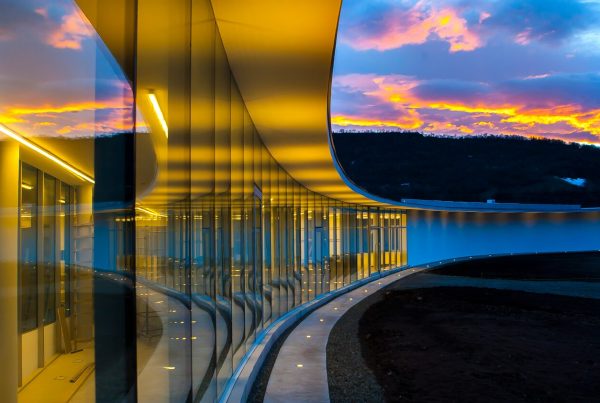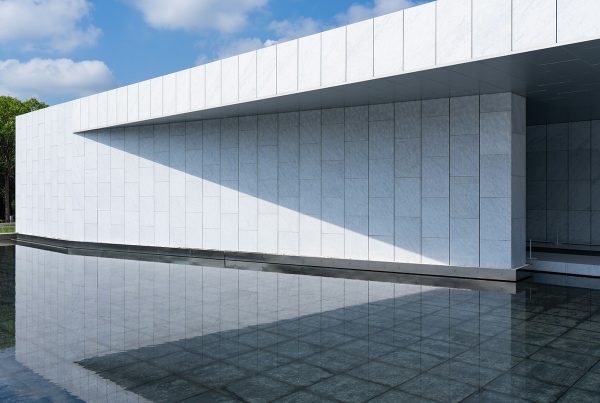China has a new shiny building, and it’s a big one. As in big big.
Set in the city of Chengdu in Southwest China, the New Century Global Center is now the world’s largest building (or standalone structure to be exact), replacing the previous record-holder, the Dubai International Airport. The dizzying specs of this mammoth structure, which officially opened last June, are as follows:
Height: 100 meters (330 feet)
Width: 400 meters (1,300 feet)
Length: 500 meters (1,600 feet)
Floor Area: 1,760,000 m² (18.94 million sq ft)
Time it took to build: 3 years
According to CNet, the building can comfortably house 329 football fields. Or twenty Sydney Opera Houses. Or three Pentagons. Or four Vatican cities. Or the entire area of the city-state of Monaco. This thing quite simply is huge.
The New Century Global Center is in fact a multipurpose building for various retail shops, offices, hotels, entertainment, and even a university complex. The structure’s main attraction though is a faux beach (400 meters of coastline) complete with artificial sun which will be beaming 24 hours a day. Naturally this reminds us of The Truman Show (starring Jim Carrey, circa 1998, still remember it?) It’s got a fake beach and ocean, too, and a controllable sun.
Building Big in China
The New Century project is not a surprising one—if there’s any country poised to build big and impressive structures, it has to be China—it’s got the funds, the land area, the manpower, the booming economy (sluggish though, lately), And, well, the penchant for grandness too. Note that they’ve been at it since the 7th century BC, with their Great Wall.
But at least the Great Wall of China served a noble purpose—that of defending the Chinese empire from invaders. As for shopping complexes and entertainment hubs of such epic proportions, now that’s a different matter. Does China really need a shopping complex this massive? Maybe yes, maybe no.
As it is, the New Century building stands as just one lavish display of architecture, devoted to mass consumption (malls, commodities, luxuries, you get the picture). At least the Dubai International Airport had a more essential purpose, although let’s face it, air travel, with its large carbon footprint, isn’t a whole lot eco-friendlier either than a giant shopping mall.
Then again, these two buildings’ essential function—that of holding aircraft and serving as a luxury mall for people—necessitates their massive size. The mantra Build small just doesn’t have a place in malls and airports. For one, malls have to be enormous not just to accommodate its tens of thousands of visitors, but for it to have that absolutely luxurious atmosphere which shoppers crave for. (The bigger, the grander.) And in the highly populated country such as China, that’s just fitting.
Sign of the Times
New Century Global Center’s main attraction is its indoor beach and mini-ocean, with a 24-hour artificial sun for completely harmless sunbathing. Currently, Germany has the biggest indoor beach in the world, while other countries such as Japan, France, the U.S., Canada, and Hong Kong of course have their own share of indoor water parks too. (The first indoor water park was created in 1985.)
Truly, our quest to modify the environment isn’t just restricted to mere buildings. We also want to simulate nature. So we create beaches large enough for people to actually take seriously. Our built environment has come to that: fake, simulated, and maybe prone to excesses.
Anyway, in an age where global warming is steadily becoming a serious threat, this has become our response: creating temperature-regulated spaces where we can all retreat. No real sun beating on our backs, no dangerous waves that can kill. Everything is tempered to a level that’s comfortable and safe.
Sustainable Building for the Future
Maybe there’s no foreseeable end to the tallest/biggest building arms race yet. But it’d be a whole lot nicer if it’s not just about height or floor area or whatever dimension we’d like to pit ourselves against each other. Everything’s big these days: from the screens of our smartphones to LED TVs to the very buildings we set foot on—so big that we’ve forgotten it’s not always size that counts, but essence too.
Remember, all these man-made structures—from the smallest to the grandest—always come at the expense of the environment. Let’s have more of those buildings that are energy-efficient and sustainable and devoted to something that really and truly matters, and the whole world will be more impressed.












nice article.
Thank you Anthony!